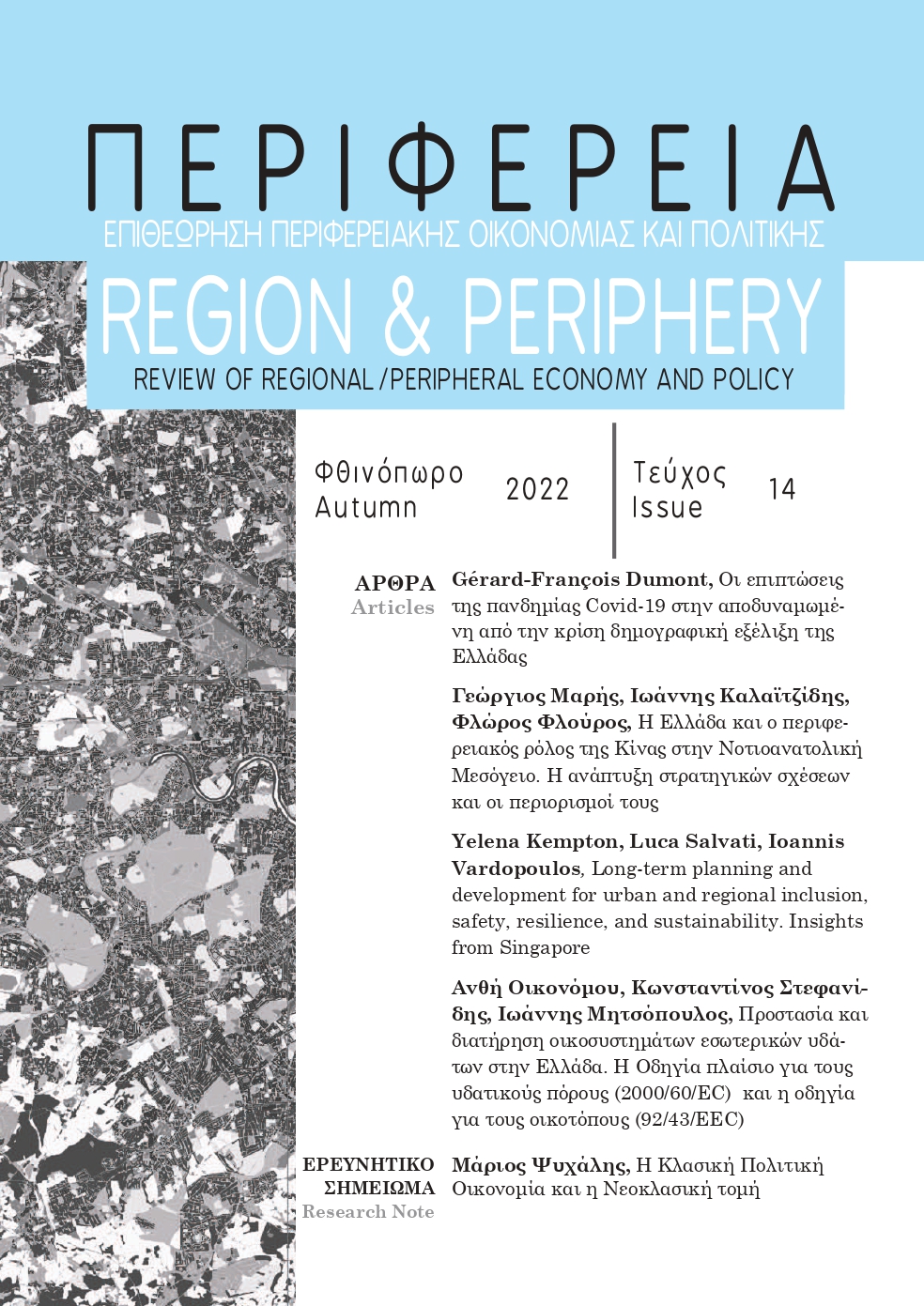The Classical Political Economy and the Neoclassical innovation
Abstract
In this paper the author examines the theoretical contribution of Classical and Neoclassical School of Thought in economic science. Classical School argues about heobjective theory of value, based on the cost of production. On the contrary, Neoclassical School argues about the subjective theory of value, based on the consumer utility. Neoclassical School introduces the use of mathematic tools, using marginal indexes and models, such Marshallian cross. Classical School uses only theoretical approach, on the contrary Neoclassical School uses marginalism and elasticity in order to examine the economic problem. On the conclusion the paper lights the similarities and the differences between Classical and Neoclassical School of Τhough
Article Details
- How to Cite
-
Psychalis, M. (2023). The Classical Political Economy and the Neoclassical innovation. Perifereia | Regional Integration: Politics, Economics, Governance, 14(14), 101–106. https://doi.org/10.12681/rp.32609
- Section
- Research Note

This work is licensed under a Creative Commons Attribution-NonCommercial 4.0 International License.
Authors who publish with this journal agree to the following terms:
· Authors retain copyright and grant the journal right of first publication with the work simultaneously licensed under a Creative Commons Attribution Non-Commercial License that allows others to share the work with an acknowledgement of the work's authorship and initial publication in this journal.
· Authors are able to enter into separate, additional contractual arrangements for the non-exclusive distribution of the journal's published version of the work (e.g. post it to an institutional repository or publish it in a book), with an acknowledgement of its initial publication in this journal.
· Authors are permitted and encouraged to post their work online (preferably in institutional repositories or on their website) prior to and during the submission process, as it can lead to productive exchanges, as well as earlier and greater citation of published work.



